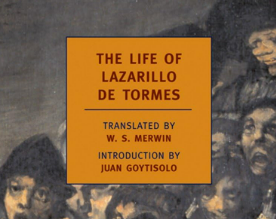Chapter II: How Lazaro Took up with a Priest and the Things That Happened to Him with That Man
byChapter II follows Lazarillo as he escapes one hardship only to enter another, leaving behind a blind master and soon finding himself under the care of a miserly priest in Maqueda. What begins with cautious hope quickly descends into another form of torment, cloaked in the false piety of his new employer. The priest, outwardly devout and respected by his community, treats Lazarillo not as a servant to be cared for, but as a burden to be rationed. Meals are rare and portions absurdly small—little more than crumbs of bread, often stale, and never enough to satisfy even a child. Lazarillo begins to understand that suffering can wear many faces, and not all of them shout. Hunger becomes a constant companion, gnawing at his strength, his patience, and his sense of self-worth. In this silent war against starvation, he begins to imagine creative ways to stay alive, knowing well that open defiance would get him nothing but the door.
The priest keeps his food secured in a locked wooden chest, guarding it as though it held holy relics. Lazarillo, emaciated and desperate, watches the box like a wolf watches a henhouse. At first, he survives off scraps from neighbors and bread meant for mourners at funerals—events he starts to anticipate with a disturbing sense of hope. His prayers turn from divine deliverance to pleas for death—not his own, but anyone’s—if it meant another meal. When the chest becomes the only reliable source of food in the house, he plots a way in. He blames imaginary mice for small holes near the base, carving out a narrow entrance through which he can sneak bits of bread. The priest, alarmed, sets traps, but finds nothing. Lazarillo continues, night after night, nibbling survival from the lies he has to invent. His belly is never full, but the taste of stolen crust feels better than honest starvation.
In time, the priest notices that his loaves are shrinking faster than expected. Suspecting a cunning rat, he seals the chest with more determination, while Lazarillo answers with a new tactic: crafting a small, handmade key. He hides it in his mouth during the day, taking great care not to be discovered. The hunger forces him to take bigger risks. When he finally opens the chest without being caught, the relief is immediate, even joyful. Each stolen bite tastes like rebellion against the cruelty of a man who sees mercy as waste. But as Lazarillo grows bolder, so does the risk of being found. The key, shaped from a discarded nail and smoothed against stone, whistles softly as he sleeps, producing a sound mistaken for a snake’s hiss. The priest wakes in terror, convinced that the devil or a serpent has come to punish him for his laxity.
That night, the priest lashes out in panic. Grabbing a heavy stick, he strikes Lazarillo without warning, aiming at what he believes is a coiled snake near his bed. The blow lands on the boy’s face, knocking him unconscious. When Lazarillo wakes, he is bruised, dizzy, and disoriented, but alive. His mouth bleeds, and the key is discovered—proof not only of his deceit, but of the priest’s error. Ashamed and shaken, the priest tells him to leave, fearing exposure more than guilt. No apology is offered, no kindness extended. Just a quiet dismissal, and another door closing behind him. Lazarillo walks away, not with hatred, but with a numb awareness that justice does not dwell in holy houses.
What this chapter shows is more than hunger; it’s a window into the contradictions of a society obsessed with appearances. The priest, who should offer charity, withholds it; Lazarillo, a boy expected to serve silently, becomes a thief out of necessity. His actions, though dishonest, are born of survival, not malice. Each deceit is a response to deprivation. He doesn’t steal for pleasure—he steals to stay alive. That distinction is what gives this chapter its depth and weight. Through cleverness and silence, Lazarillo continues to endure a world that punishes the poor for needing help. The irony lies in the fact that those meant to protect the weak often become their worst tormentors. As he limps away from the priest’s house, battered but breathing, Lazarillo takes with him not just physical scars, but a clearer understanding of how cruelty often wears a mask of virtue.
He may be small, poor, and alone, but with each chapter of his life, Lazarillo becomes sharper, more aware of the games others play, and more determined not to be destroyed by them. In this bitter episode, he learns that even when power is cloaked in holiness, it can still strike with violence. But he also learns that he can survive it. His journey is far from over, and though this chapter ends with pain, it also carries the beginnings of resilience—the kind not granted by grace, but forged in quiet resistance.

